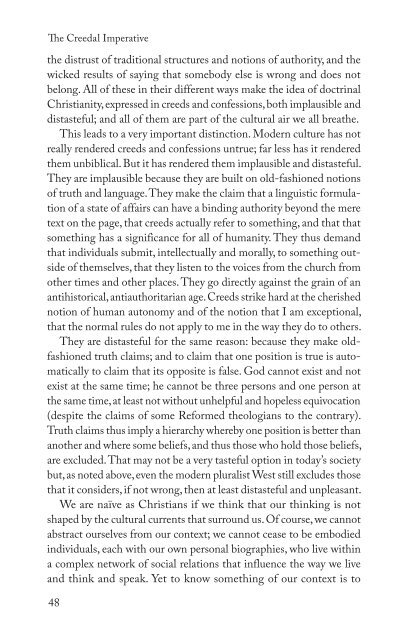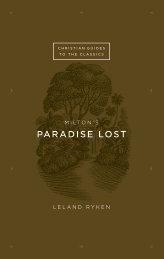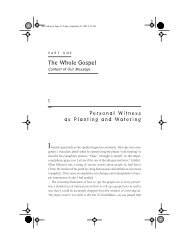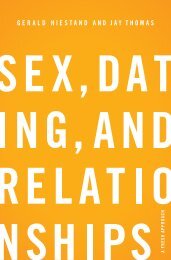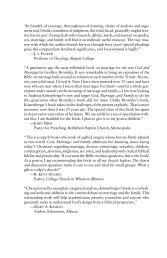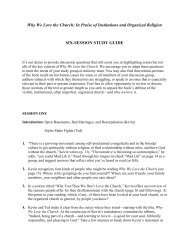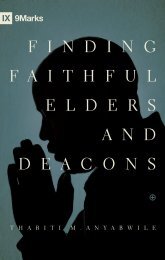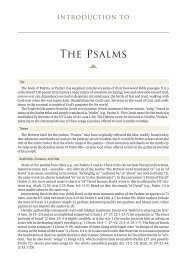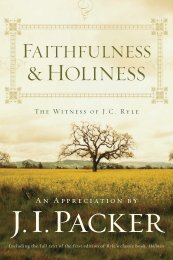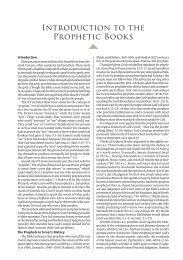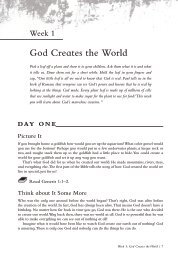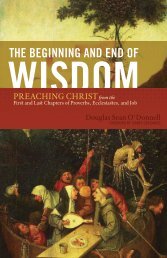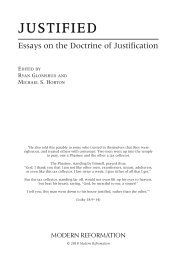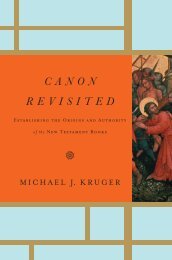The reedal - Monergism Books
The reedal - Monergism Books
The reedal - Monergism Books
You also want an ePaper? Increase the reach of your titles
YUMPU automatically turns print PDFs into web optimized ePapers that Google loves.
<strong>The</strong> C<strong>reedal</strong> Imperativethe distrust of traditional structures and notions of authority, and thewicked results of saying that somebody else is wrong and does notbelong. All of these in their different ways make the idea of doctrinalChristianity, expressed in creeds and confessions, both implausible anddistasteful; and all of them are part of the cultural air we all breathe.This leads to a very important distinction. Modern culture has notreally rendered creeds and confessions untrue; far less has it renderedthem unbiblical. But it has rendered them implausible and distasteful.<strong>The</strong>y are implausible because they are built on old-fashioned notionsof truth and language. <strong>The</strong>y make the claim that a linguistic formulationof a state of affairs can have a binding authority beyond the meretext on the page, that creeds actually refer to something, and that thatsomething has a significance for all of humanity. <strong>The</strong>y thus demandthat individuals submit, intellectually and morally, to something outsideof themselves, that they listen to the voices from the church fromother times and other places. <strong>The</strong>y go directly against the grain of anantihistorical, antiauthoritarian age. Creeds strike hard at the cherishednotion of human autonomy and of the notion that I am exceptional,that the normal rules do not apply to me in the way they do to others.<strong>The</strong>y are distasteful for the same reason: because they make oldfashionedtruth claims; and to claim that one position is true is automaticallyto claim that its opposite is false. God cannot exist and notexist at the same time; he cannot be three persons and one person atthe same time, at least not without unhelpful and hopeless equivocation(despite the claims of some Reformed theologians to the contrary).Truth claims thus imply a hierarchy whereby one position is better thananother and where some beliefs, and thus those who hold those beliefs,are excluded. That may not be a very tasteful option in today’s societybut, as noted above, even the modern pluralist West still excludes thosethat it considers, if not wrong, then at least distasteful and unpleasant.We are naïve as Christians if we think that our thinking is notshaped by the cultural currents that surround us. Of course, we cannotabstract ourselves from our context; we cannot cease to be embodiedindividuals, each with our own personal biographies, who live withina complex network of social relations that influence the way we liveand think and speak. Yet to know something of our context is to48


